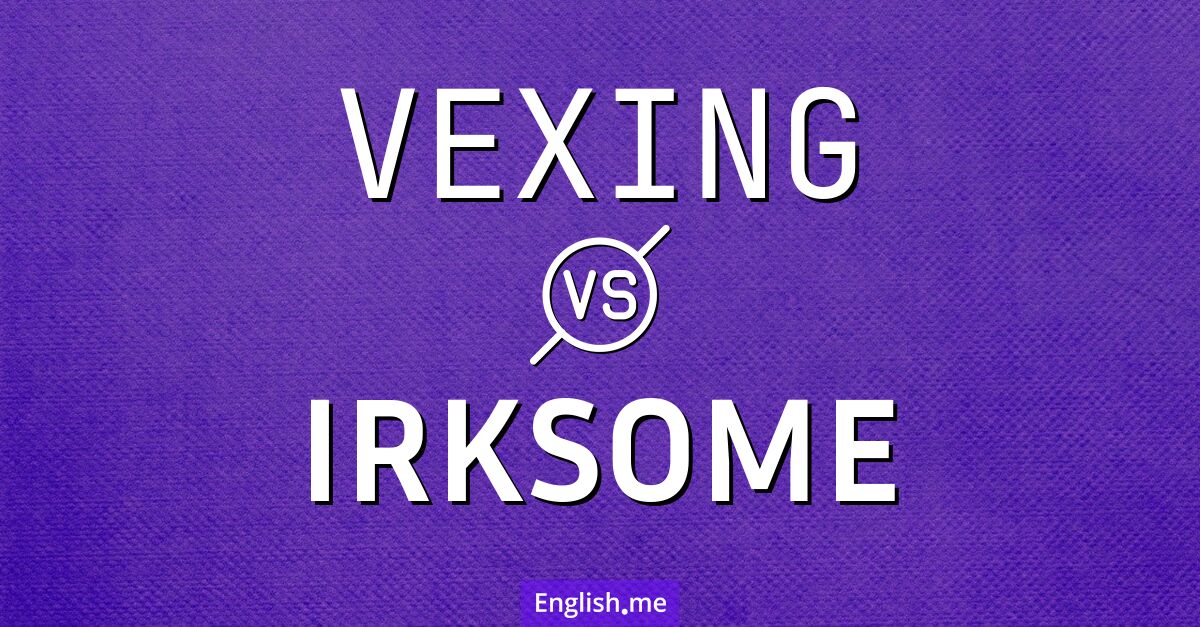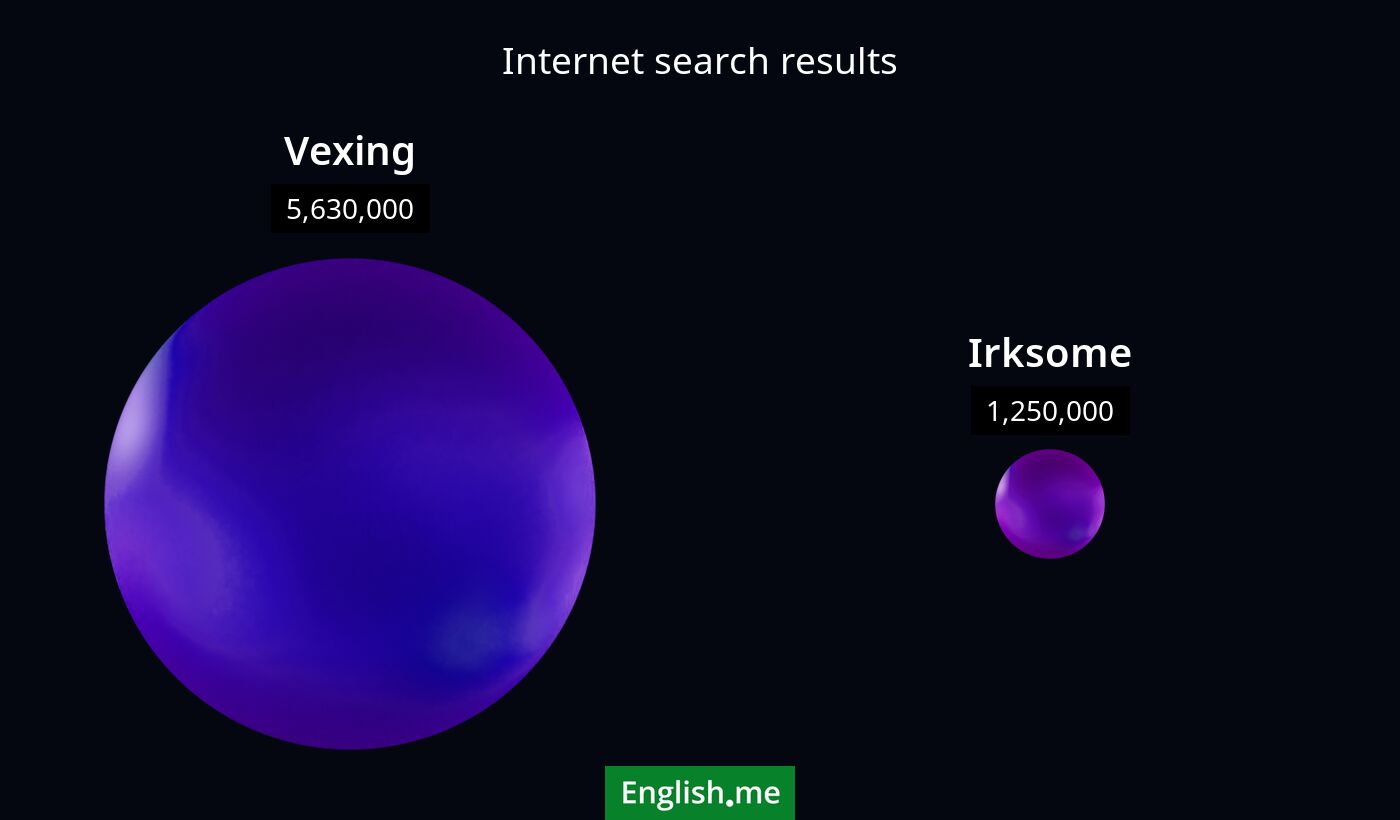"Vexing" vs. "irksome": two ways to be annoyed
Reviewed and edited by  Lloyd Cooper 31/05/2025, 16:29
Lloyd Cooper 31/05/2025, 16:29
English.me team member

 What is similar?
What is similar?
Both "vexing" and "irksome" describe something that causes annoyance or discomfort. They are both adjectives used to express irritation or frustration.
 What is different?
What is different?
"Vexing" often implies a deeper or more persistent feeling of annoyance, sometimes involving puzzlement or distress. "Irksome" usually refers to something irritating in a more tedious or bothersome way, often due to repetition or monotony.
 Which one is more common?
Which one is more common?

 Examples of usage
Examples of usage
Vexing- The puzzle was vexing, and she spent hours trying to solve it.
- It is vexing when people repeatedly ignore your advice.
- The delay was particularly vexing because it was unexpected.
- The irksome noise from the construction made it hard to concentrate.
- Filling out long forms can be an irksome task.
- His habit of interrupting was especially irksome during meetings.

 English
English español
español française
française italiano
italiano deutsche
deutsche 日本語
日本語 polski
polski česky
česky svenska
svenska Türkçe
Türkçe Nederlands
Nederlands